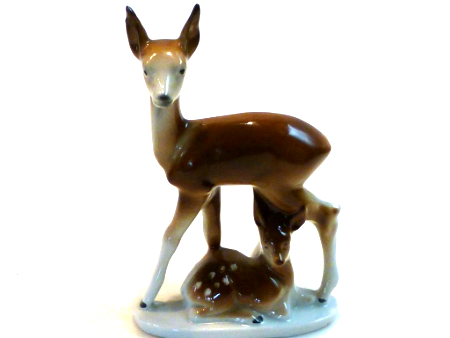 The window over the kitchen sink looks out at the backyard. Theory’d been, she could watch the kids play. Croquet or whatever. That was a long time ago. Carl had put in a garden that turned out to be popular with local wildlife. Once the shoots were up they came and returned, voracious. Subsequent Googling to learn that deer like edge habitat. Which is what this is, he said. The edge. The best place.
The window over the kitchen sink looks out at the backyard. Theory’d been, she could watch the kids play. Croquet or whatever. That was a long time ago. Carl had put in a garden that turned out to be popular with local wildlife. Once the shoots were up they came and returned, voracious. Subsequent Googling to learn that deer like edge habitat. Which is what this is, he said. The edge. The best place.
He installed that fence, the so-called exclosure, a metal net reinforced with steel rods. That’s not going anywhere. After a couple years she stopped bothering to plant anything inside it. Never was all that successful, wormy zucchini, stunted carrots. Now all the exclosure protects is weeds, a perfect square of tall weeds smack in the middle of the yard.
The rest is trimmed by nighttime visitors, regulars, she imagines, checking for new growth. In the morning she looks out the window and sees fresh droppings, piles of black pellets in the stubble.
But at night the window is a mirror. It reflects back her image while she washes today’s dishes. Makes sense to let them pile up. Efficient. She starts by tossing the dregs of her final bourbon and turning on the hot water and pulling on the pink rubber gloves and waiting for the steam to rise. Then washes the bowl at the top of the pile, with remnants of dinner’s mac and cheese. Under that, her lunch plate. Extra attention needed to the smear of tuna salad. Next the cereal bowl with several bloated Cheerios. Finally the coffee mug plus a small glass streaked with V‐8. All this time she avoids her reflection, avoids being reminded of that pasty face, that frown she doesn’t recognize.
Next: the Discovery Channel. Storm Chasers. The Frozen Planet. Coming up: Appalachian Hunters. Carl’s favorite.
He left her the old sofa and the television. She sold them on Craigslist and got this top of the line Barcalounger and that 60-inch high-def flatscreen mounted at the perfect spot for watching from the fully reclined position. She’d taken care measuring and testing before screwing the brackets into the studs.
Be selfish, Dr. Schoenfeld told her. Thursdays she drove into Manassas to see him. Now’s your time. What makes you happy?
Process of elimination. Not Carl. Shame to say, not Karen nor Petey either. Owning up to that was letting Dr. Schoenfeld hook a fat one in her stocked pond. But he kept fishing. Everyone disappointed everyone.
It’s not too late to get back out in the world.
The barcalounger is upholstered in midnight blue velveteen. She rubs the pile, brushing the nap up and smoothing it down again. How did they make it fit her so perfectly? Every bone and joint, all her muscle and gristle, supported from the curved cushion under her neck down to the elevated pad under her feet. It’s like being gently lifted in God’s enormous palm. On the screen now a hunter in camouflage raises his rifle and waits to take a shot.
Washing dishes she saw something like what he’s watching. A flicker in the window, behind her reflection, made her bend close, look through that frowny image to see outside. It was a doe about the size of the one about to get shot on TV. Just chewing and looking up, like Carl working a hunk of brisket. The doe had bolted into the blackness. She hasn’t seen it since.
The doe makes sure of this.
She is careful making her way around the exclosure. The thing is to stay in the back, on the dark side. Away from the shrubs under the window. She knows the backyard, knows to wait. She is after the tender lush patch inside the fence, that fragrant pubis of the otherwise disappointing yard. She knows the protrusions, the branches and sprouts and sharp hazards. How to get at it? She knows the awful face in the window and that tonight, like every night, it will disappear, the bright light dimmed to a watery gleam meaning it’s safe. She eats everything she can reach until the noise from the other side of the window. A muffled blast, not quite real, but it gets her running anyway, back to darker places. Still hungry.
Helen Hooper spent twenty-five years as an environmental lobbyist in DC before turning to writing full time. A recent Stegner Fellow, her work has appeared in The Common, The Hopkins Review, Bellevue Literary Review, New South and elsewhere and has been awarded support from the Ucross Foundation, the Ragdale Foundation and the Virginia Center for the Creative Arts and Stanford University. She was also a Peter Taylor Fellow at the Kenyon Review Writers Workshop. She is currently working on a novel set in northern Alabama.